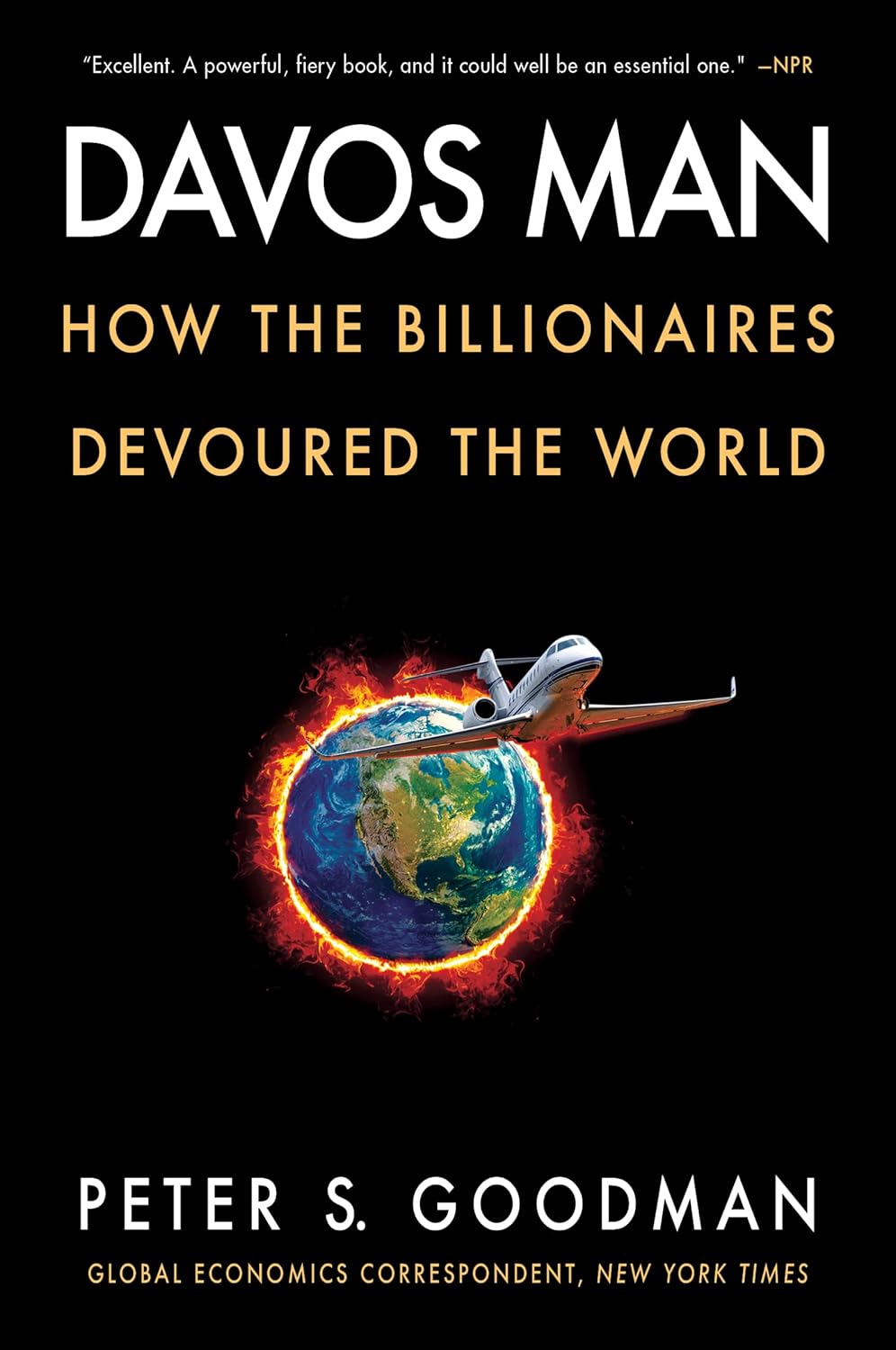Lewis H. Lapham: Maybe you can begin with the answers to two questions raised in the title. Who is Davos Man, and how are we to understand the verb devoured?
Peter S. Goodman: Well, these are great questions. The term Davos Man was coined back in 2004 by the political scientist Samuel Huntington, and he used it to describe principally people who go to the World Economic Forum in Davos. This is this annual pilgrimage for the wealthiest people on Earth, a billionaire class along with heads of state, public intellectuals, the odd Hollywood celebrity. And they go there to schmooze and do deals and signal their virtues. They all commune under the very ironic banner committed to improving the state of the world, which is really something given that the people who go to Davos regularly are, by any reasonable standard, the ultimate beneficiaries of the status quo—and the status quo doesn’t really need much improvement for them.
I used the term to refer to a kind of separate species of human: people who are so wealthy—their wealth requiring accountants and lobbyists and lawyers in multiple jurisdictions—that it really challenges their allegiance to anything other than the bottom line to institutions, to nations. And I use it specifically to refer to the billionaire class that would have us believe that they are not only not the source of our problems in the world but they are the solution to our problems.
People like Marc Benioff, who is one of the five primary characters in my book, is the CEO of a big Silicon Valley tech company called Salesforce, who literally said at Davos—this is the virtual Davos, last year, because of the pandemic—“CEOs are the real heroes of the pandemic.” He wasn’t talking about frontline medical workers. He wasn’t talking about people who were serving up our food, delivering our packages, emptying bedpans in senior citizens’ homes. No, CEOs are the heroes. And he said, “You know, we saved the world not for profit but just to save the world.”
This, I argue in the book, is not a gaffe, as some people would characterize it. It’s a worldview. It’s a worldview that assumes that if these guys are the good guys, then the more money they have, the more good they can do. This is an elaborate protection against things like progressive taxation and antitrust enforcement and regulation. They use it to essentially fend off the exercise of democracy.
